Robert Pether: Australian worker’s jailing in Iraq a grim tale of central bank corruption and missing millions
Shock revelations of government corruption, fraudulently obtained confessions and business deals for false testimony have emerged as Robert Pether approaches his third year in an Iraqi jail cell.
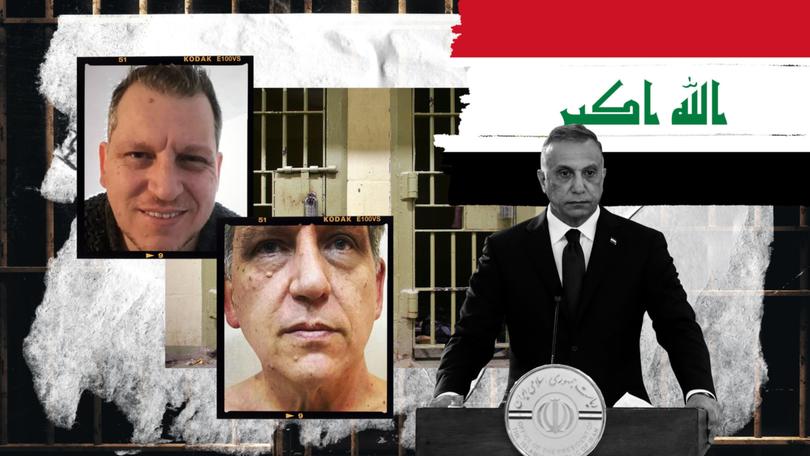
Iraqi authorities have conspired in what’s now the almost-three-year imprisonment of Australian father Robert Pether, with months of premeditated government corruption and a plot to extract his confession in a multi-million dollar commercial dispute with his employer.
An investigation by The Nightly has obtained internal Iraqi government documents revealing months of premeditated contract breaches with Mr Pether’s employer, engineering firm CME, a covertly government-paid translator, and an international trip to meet with a would-be prosecution witness.
The documents reveal the Iraqi prime minister’s office did not accept a request to meet with Australian diplomats months before Iraqi authorities would quash a TV news investigation exposing torture at his prison.
Sign up to The Nightly's newsletters.
Get the first look at the digital newspaper, curated daily stories and breaking headlines delivered to your inbox.
By continuing you agree to our Terms and Privacy Policy.The Nightly has offered to not name former officials of the Iraqi prime minister’s office and others close to government decision-making, none of whom are authorised to speak publicly, to reduce risks to them as they openly discuss the case for the first time.
They contest the advice of Australia’s Department of Foreign Affairs and Trade to the Australian Parliament in February that there is “no possible option” of a pardon to secure his return home.
Sydney-born engineer Mr Pether and his Egyptian colleague Khaled Saad Zaghloul, who both assert their innocence, were jailed in 2021 for five years and fined US$12 million ($18m) over allegations their company, CME, defrauded the Iraqi government during a project to build its new central bank headquarters.
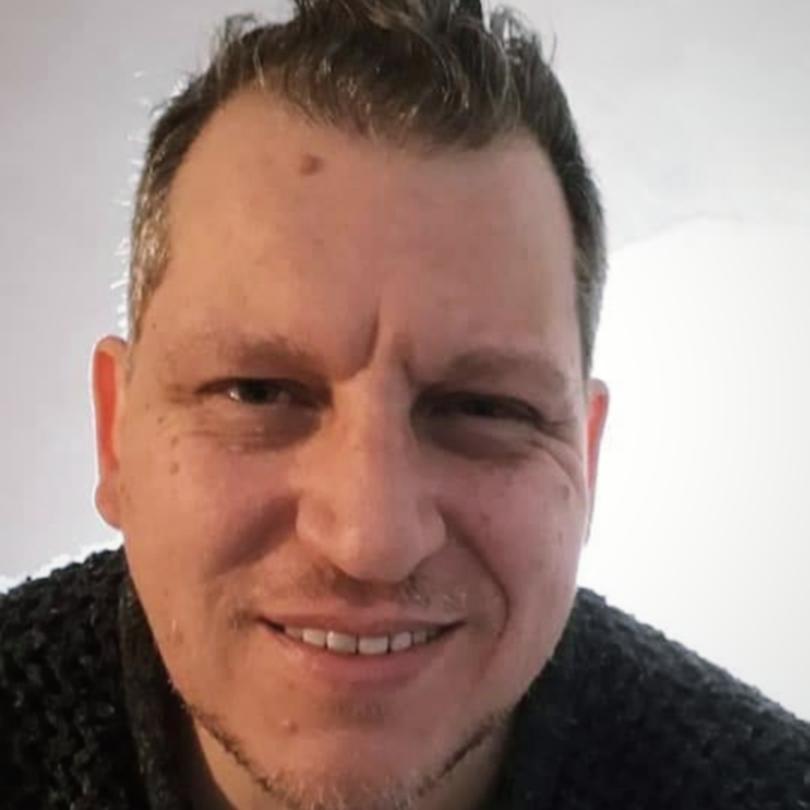
The allegation only arose as CME was preparing to exit the country amid months of multi-million dollar contract breaches by its Iraqi government client, the Central Bank of Iraq.
The Nightly can reveal that Mr Pether’s Iraqi government-appointed translator in the criminal case, who had him sign a pre-written Arabic confession statement after he had been taken to a torture chamber, was secretly an employee of the Central Bank of Iraq, the same government client that was committing months of multi-million dollar contract breaches against his employer before accusing the pair of fraud as the company was mobilising to exit Iraq.
“I was blindfolded and in handcuffs”, Mr Pether, a father of three, claims of his walk to the four-day interrogation where he would encounter the covert Iraqi central bank translator, after being shown a designated torture room with “wall brackets to suspend or hold people, suspended ropes for putting people into stress positions, electrical equipment for shocks and canes for beating”.
“When the translator entered the room, (he) introduced himself to me, I replied that I already knew him. He denied this”, Mr Pether said.
The Nightly has obtained an image of an Iraqi central bank employee ID card that matches the translator’s name signed on the Arabic confession statement, also obtained by The Nightly, appearing to confirm the Australian man’s allegation and contemporaneous diary notes that his translator was employed by his accusers.
The ID card reveals that the translator was a senior officer of the Iraqi central bank’s legal branch. It is the allegations made by the legal branch over which Mr Pether and Mr Zaghloul will be imprisoned for three years, next month.
“Mr Pether stated that if it had been written in English, he would not have signed it,” contemporaneous court notes obained by The Nightly from an observer who was not party to the case, said of the confession statement.
Asked why it sent its own employee to translate for a defendant of whom it is the accuser, the Iraqi central bank did not respond. The Iraqi central bank’s head of external relations blocked The Nightly when it sent a text message to their mobile number.
There was also no response from the Iraqi central bank, prime minister’s office, president’s office, foreign affairs ministry, and its embassy in Canberra when asked if the decision to send someone employed by Mr Pether’s accuser, and who worked in the exact central bank branch making the fraud allegations, to translate for the accused amounted to a miscarriage of justice.
Both Mr Pether and Mr Zaghloul were arrested by seven plain-clothes officers after the central bank legal branch invited CME to a “meeting in Baghdad urgently to discuss and resolve the dispute according to the terms of the contract and not through illegal withdrawal” on 7 April, 2021.
The Nightly can reveal that before this fateful meeting with the Iraqi central bank governor, the bank had failed to pay seven months of invoices and demanded that CME work for free in the knowledge that these would be breaches of the contract and that the central bank would be liable for those breaches.
An internal Iraqi central bank memo obtained by The Nightly, signed by two directors and four engineers and dated three months before the invoice payments stopped, warned the legal branch to “reconsider” the breaches the bank was intending to make against Mr Pether’s and Mr Zaghloul’s employer, advising it “to be consistent with the contract” and “not to redistribute the remaining contract amount for the remaining period of the project”.
The Iraqi central bank instead demanded CME accept the losses to compensate for project delays in the construction of its new Baghdad headquarters caused by a separate central bank contractor. The contract in fact entitled CME to an extension with additional payment.
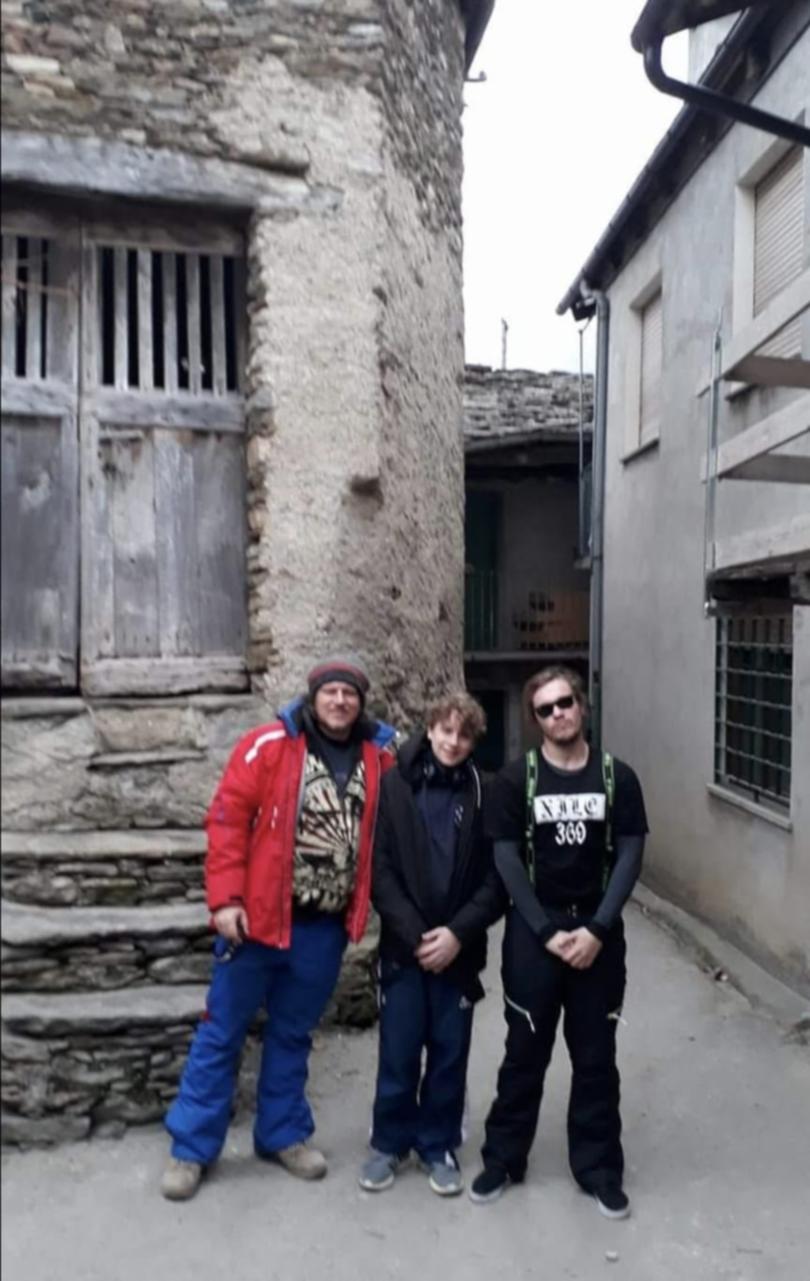
Asked why it did not comply with this internal warning to adhere to the contract and whether the Iraqi central bank conspired to bring the charges against Pether and Zaghloul in a bid to relieve itself of the millions of dollars it owed CME, the Iraqi central bank did not respond.
The Nightly called and sent another text message to the Iraqi central bank’s head of external relations, stating there had been no response to emailed media enquiries. They responded suggesting The Nightly send a media enquiry by email then again blocked its number.
The Nightly has confirmed that the US$12.2 million ($18.3m) penalty issued in Mr Pether’s and Mr Zaghloul’s criminal sentence in August 2021 resembles the more than US$11.2 million ($16.8m) plus 5 per cent interest figure calculated from 2021 that the International Court of Arbitration would last year rule the Iraqi Central Bank owed the pair’s employer, CME.
That International Court of Arbitration case was launched by CME in June, two months before the US$12 million criminal penalty was issued by an Iraq court.
Mr Pether and his Egyptian colleague Mr Zaghloul were asked to travel to the April 7, 2021, meeting by their Dubai-headquartered employer, CME, which received the invitation from the central bank legal branch.
Once again, the bank, Iraq’s prime minister’s office, president’s office, foreign affairs ministry and its Canberra embassy did not respond when asked whether an Iraqi government agency committing seven months of premeditated contract breaches then having Mr Pether and Mr Zaghloul arrested after inviting them to Baghdad to resolve the contract dispute suggests of a conspiracy to hold them as hostages.
These revelations come ten months after The Guardian obtained a cache of internal company emails undermining key prosecution testimony also relied upon by Iraqi authorities to jail the two CME employees.
The Nightly can reveal that an Iraqi central bank delegation traveled from Baghdad to Dubai in the weeks before their arrests to meet with a CME subcontractor, Meinhardt Group.
Iraqi prosecutors relied on a Meinhardt Group employee’s testimony of fraud against Mr Pether and Mr Zaghoul. It is the same testimony that was undermined by the contradicting Meinhardt company emails, including emails in which a senior Meinhardt executive was copied, published by The Guardian last year.
“In the third month of this year (the month before their arrests in 2021), a delegation from the Central Bank of Iraq came to our company headquarters in Dubai …” the signed witness statement of a Meinhardt employee, tendered in the prosecution case and obtained by The Nightly, said.
Asked again why its testimony was inconsistent with its own emails published by The Guardian, asked whether the Iraqi central bank had asked it to accuse Mr Pether and Mr Zaghloul of fraud, and whether and if so when, the Iraqi central bank forewarned it of an intent to arrest the two men or to otherwise end its relationship with CME, Meinhardt did not respond.
Mr Pether and Mr Zaghloul were arrested on the afternoon of April 7, 2021. Meinhardt had established a team in Baghdad to replace CME the next morning.
“The morning of the 8th April 2021 CBI (Central Bank of Iraq) Management came int (sic) the CME Offices with two new faces from a company called Meinhardt. They were introduced as the new project director (name redacted) and project manager (name redacted)”, CME then-employee Rod Irwin wrote in a statement dated three months later and provided to The Nightly.
“CBI came to us a week before their arrests and asked: ‘If the payment issue wasn’t resolved, would we be interested in staying on with a new contractor?’ ” he told The Nightly.
The Iraqi central bank invited CME to Baghdad to “resolve the dispute” on March 29, 2021.
The Iraqi central bank and Meinhardt did not respond when asked if the bank had asked Meinhardt to replace CME on or before this date.
Mr Pether claims that the same senior Iraqi central bank officer who purported to be his translator further interfered with his defence by attending his first meeting with his lawyer.
“At this meeting we were not given the opportunity to speak with (our lawyer) directly or privately about the case raised against us or our defence in the matter,” he said.
Asked whether, and if so why, the Iraqi central bank sent its own employee to attend the meeting, the Iraqi central bank did not respond. Asked whether this amounts to government interference in Mr Pether’s defence, the Iraqi central bank, prime minister’s office, president’s office, foreign affairs ministry, and its embassy in Canberra did not respond.
Appearing before Australia’s Parliament in February, the Department of Foreign Affairs and Trade said its efforts to secure Robert Pether’s release have to date been unsuccessful.
“We have undertaken extensive representations through our head of mission at multiple levels to the Iraqi government in order to try and find a pathway for this case, but so far we have been unable to secure his release”, DFAT told the Senate.
Prime Minister Anthony Albanese raised Mr Pether’s detention in a June 2022 phone call with Iraqi then-prime minister Mustafa Al-Kadhimi, The Guardian reported at the time.
Assistant foreign minister Tim Watts has now made three trips to the Middle East but has not visited Iraq. Foreign minister Penny Wong also visited the Middle East in January but did not visit Iraq.
This is different to the cases of journalist Cheng Lei and democracy activist Chau Van Kham, who were subsequently released after Ms Wong visited China and Vietnam respectively to raise their cases.
When asked why there have been no ministerial visits to Iraq to advocate for Mr Pether’s release, a DFAT spokesperson did not answer the question.

Asked whether the Foreign Minister raised Mr Pether’s detention with neighbouring countries of Iraq during her January visit to the Middle East, following his family’s requests that international partners be engaged, the spokesperson did not answer the question.
A source from the office of the Iraqi prime minister in power during Mr Pether’s arrest and sentencing said that in their opinion a visit by an Australian minister or prime minister could have improved the prospect of Mr Pether being released — and still can.
“Of course, an intervention by an Australian minister or even prime minister would have gone a long way in building not only political will but goodwill from Iraqi officials who pride themselves in being generous and not turning away people who make requests of them. Australian officials could have appealed to this sense of generosity”, the source said.
“It is never too late to appeal to these senses.
“Especially with the current government which is seeking to portray itself as the one capable of building bridges in foreign affairs especially western countries. Also, it wants to paint the previous government (led by Mustafa Al-Kadhimi) as malicious and incapable of governing, especially as we are 12-18 months from national elections and it seems the current PM will have a second term.”
Provided this opinion and again invited to comment on why there have been no ministerial visits to Iraq to advocate for Mr Pether’s release, the DFAT spokesperson did not answer the question.
In October, an Iraqi court found the CME-employed pair civilly liable in a US$7 million ($10.5m) claim launched by the Iraqi central bank on the basis of the guilty criminal finding, bringing their total owing to more than US$19 million ($29m).
Later that month, the Iraqi central bank appealed that decision, instead seeking US$50 million in a case that is yet to be determined.
Asked whether it would withdraw its two civil claims and seek a reversal of the guilty criminal finding given evidence of its conspiracy and interference, the Iraqi central bank did not respond. Asked whether it expects the Iraqi central bank to withdraw this claim and seek a reversal of the guilty criminal finding, the Iraqi prime minister’s office, president’s office, foreign affairs ministry, and its embassy in Canberra did not respond.
In one example indicating the engagement that the most senior Iraqi officeholders have had with Australian officials, The Nightly has seen emails from the office of the Iraqi prime minister in power at the time of Mr Pether’s arrest and imprisonment, showing it did not accept an April 2022 meeting request from Australia’s then-ambassador to convey a letter about “our consular case” to then-prime minister Mustafa Al-Kadhimi.
“The Ambassador’s strong preference is to convey it to Mr Kadhimi in person, as per the meeting requests below”, a senior Australian embassy official wrote.
“I will make this letter is letter is officially received (sic)”, the response said.
The Iraqi prime ministerial official that replied to the email and a DFAT spokesperson would not answer when asked whether the particular proposed meeting ultimately went ahead.
A source politically close to Mr Al-Kadhimi declined to facilitate an interview with him.
The United Nations Working Group on Arbitrary Detention found Robert Pether to be arbitrarily detained in its November 2021 report.
“It is suspected that he was shown torture rooms, blindfolded, insulted and screamed at”, it wrote of Mr Pether’s conditions during the period he was asked to sign the pre-written, incriminating statement.
“Reportedly, Mr Pether had almost no access to water and suffered very severe dehydration. He was almost never allowed outside, only for two hours during the first 12 days of his detention.
“Mr Pether has experienced significant delays in accessing consular assistance from Australia. Australian consular officials did not have access to Mr Pether until 3 May, 26 days after his arrest. The first time Mr. Radwan received consular assistance was on April 12, 6 days after his arrest.”
A DFAT spokesperson who was asked why the Australian embassy in Baghdad did not visit Mr Pether earlier than 26 days after his detention did not answer the question.
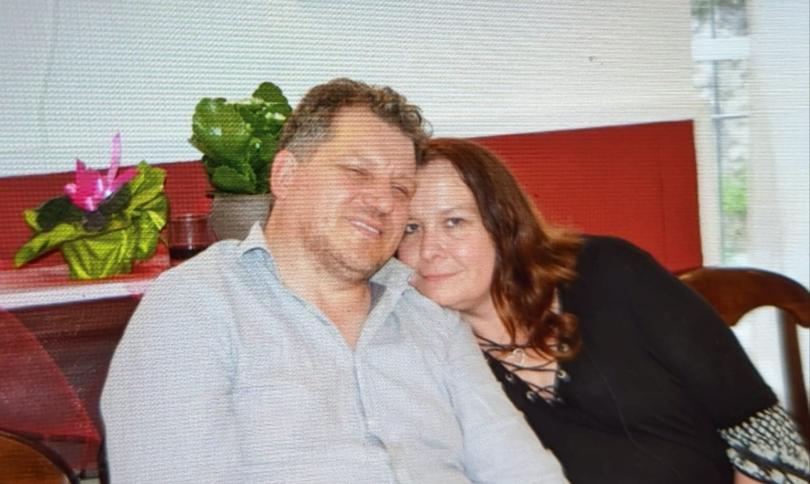
Mr Pether and Mr Zaghloul marked one thousand days in prison in January. By April, they will have been imprisoned for three years.
“Will we ever see him again,” Mr Pether’s wife, Desree, said to The Nightly.
“He’s one of the nicest people on the planet. And that’s what breaks my heart about how he’s being treated. The heinous treatment”, she said.
In November 2022, Iraqi media Utv reported that Iraqi prisons are “full of stories of torture and the extraction of confessions by torture”.
The Utv feature on Al-Muthanna Airport Prison was opened with the phrase “Guantanamo Muthanna Airport”, a reference to the infamous Cuba-based US military prison involved in repeated torture claims.
Pether has been imprisoned at Al-Muthanna Airport Prison since day 12 of his detention until late January this year when the land was repurposed by a property developer.
A day after the Utv report, current Iraqi PM Mohammed Shia’ Al-Sudani announced an investigation into the allegations of abuses at the prison and instructed his human rights adviser to visit and interview its detainees. Iraqi authorities then quashed the report.
“The channel’s management had to delete it from YouTube due to great pressure from the authorities”, a source close to the matter told The Nightly.

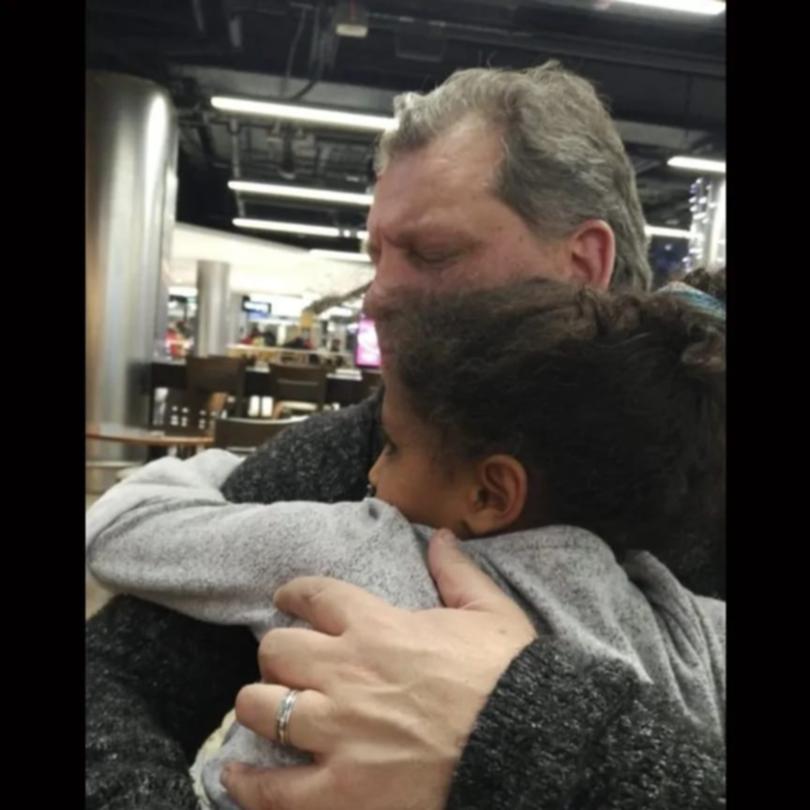
All four of Robert and Desree Pether’s children have told The Nightly of their heartache.
“As the fourth Ramadan starts since my dad was taken from us, our only hope is that there is some humanity and he is released”, said Flynn, who was 17 when his dad was arrested, and who will soon turn 21.
“It’s almost three years since our father was taken from us. All that time we have been trying to prove his innocence and we have been ignored”, said Oscar, who is now approaching 19 years of age.
Eleven-year-old Nala, who was eight when Mr Pether was arrested, said: “I just want my dad back. I miss him so much.”
“It’s hard to feel any pride in being Australian when my government is leaving my dad to rot in an Iraqi prison cell. The lack of care and support should be a warning to anyone who is looking to work overseas. Shame on this government,” Desree’s eldest son, Dylan, 30, said.
Mr Pether remains imprisoned despite Mr Al-Sudani announcing a complaints process for victims of coerced confessions.
That complaints process was established earlier in the same month as the deleted Utv report that exposed “the extraction of confessions by torture” across Iraq.
The announcement cited Article 19(5) of the Iraqi constitution: “the accused is innocent until proven guilty in a fair legal trial”.
“We call upon anyone who has been subjected to any form of torture, or forcible extraction of confessions, to submit his complaint to the Prime Minister’s Adviser for Human Rights … in order to promote and protect human rights in Iraq”, the announcement by the office of the Prime Minister said.
Asked whether it had engaged with the Prime Minister’s Adviser for Human Rights pursuant to this process, the DFAT spokesperson did not answer the question.
Iraq’s former PM, Mr Al-Kadhimi, was in office during Mr Pether’s and Mr Zaghloul’s arrests and sentencing, until October 2022.
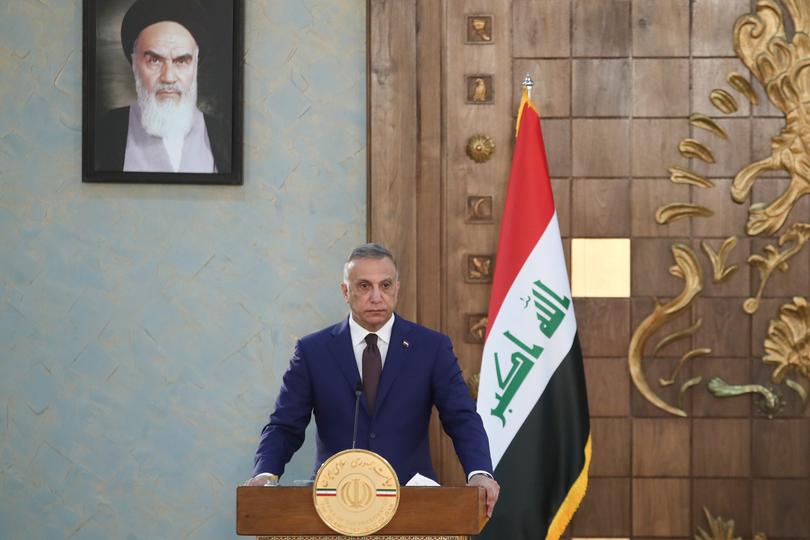
Mr Pether has informed The Nightly about the conditions at his first prison D6. He described a device used against other prisoners there.
“It is a rubber mask with small slits in the face for breathing - but it restricts the amount of air that can come in,” he said.
“Basically, the interrogations put you under physical stress so that you breathe more heavily, but as there is not enough air coming in the mask the wearer suffocates and blacks out.”
Mr Pether and Mr Zaghloul’s August 2022 application for a retrial was denied in October of that year. Their application to appeal against this decision was denied in February 2023. Another retrial application has been pending for more than twelve months.
Asked whether Mr Al-Kadhimi considered pardoning the pair, a second source from his prime minister’s office said Mr Al-Kadhimi considered the case “a judicial matter, not an executive one”.
“... We have made representations to see if pardons could be granted, but, as you are aware, there is a financial penalty outstanding. Until that issue is resolved, there is no possible option for pardons to be granted by any member of the Iraqi government”, DFAT continued in its evidence to the Senate last month.
“...One of the hopes is that, if a retrial delivered a result that could reduce or waive that penalty, perhaps other options could be pursued, but, as long as the financial penalty is there, that’s the sticking point.”
Mr Al-Kadhimi did, as was his constitutional executive prerogative as prime minister, commend Iraqis for presidential pardons, including in cases involving financial penalties. Mr Pether and Mr Zaghloul were not among them.
On a single day in October 2021, two months after their sentencing, 571 Iraqis were pardoned.
Although later rescinded by the president amid political opposition, Mr Al-Kadhimi had three Iraqi nationals pardoned in January 2022 after a court found them guilty of trafficking drugs into the country. One of the trio is the son of a former Iraqi governor. He was sentenced in March 2018 to 15 years imprisonment and issued a financial penalty of 30 million Iraqi dinars ($35,000). The governor resigned one day before Mr Al-Kadhimi proposed his son be pardoned.
“A Shi’ite lawmaker, who asked for anonymity, said the pardon was part of a deal to secure the governor’s resignation,” reported Dubai-based The National News. “Even though the presidential pardon formally conformed with the legal and constitutional procedures, it was not carefully examined and it did not comply with the strict controls approved by the presidency,” a statement from then-president Barham Salih released that same day said.
The Nightly approached DFAT with this precedent of a pardon and the affirmation of its legality by the Iraqi then-president. Asked why DFAT has assessed, contrary to this, that the financial penalty against Mr Pether leaves “no possible option” of a pardon and whether this has curtailed its efforts to secure his release, its spokesperson did not answer the question.
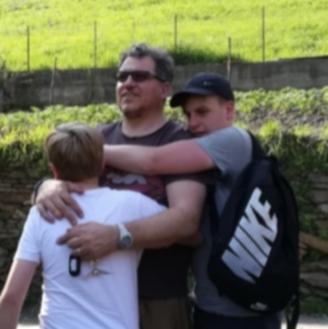
Asked for their opinion on DFAT’s assessment, the first source from Mr Al-Kadhimi’s prime minister’s office said “The financial penalty is not a hindrance to a presidential pardon as Iraq has witnessed pardons which included such penalties.”
“What is missing here is political will. It’s that simple. If the PM and president wanted to free this man then they could have long ago”, they said.
“Let’s be honest if they really wanted to pardon him, they could’ve,” a third source from Mr Al-Kadhimi’s prime minister’s office said.
Provided these opinions and again invited to comment on why it has assessed that there is “no possible option” of a pardon and whether this assessment has curtailed its efforts to secure his release, the DFAT spokesperson did not answer the question.
Asked by The Nightly whether the current Iraqi prime minister and president would pardon Mr Pether and Mr Zaghloul, their offices did not respond.
In their statement, the DFAT spokesperson said “The Australian Government continues to provide extensive consular assistance to Robert Pether and his family.”
“We have consistently advocated for Mr Pether’s rights and welfare at all levels.”
“The Australian Government is unable to intervene in another country’s legal or court processes, but we continue to convey our expectations that Mr Pether is entitled to due process, humane and fair treatment, and access to his legal team.
“Owing to our privacy considerations, we are unable to disclose further details.”
DFAT advises Australians “do not travel to Iraq” “due to the volatile security situation and the threat of terrorism, armed conflict, kidnapping and violent crime.” Iraq has been a “do not travel” destination since 2000.
